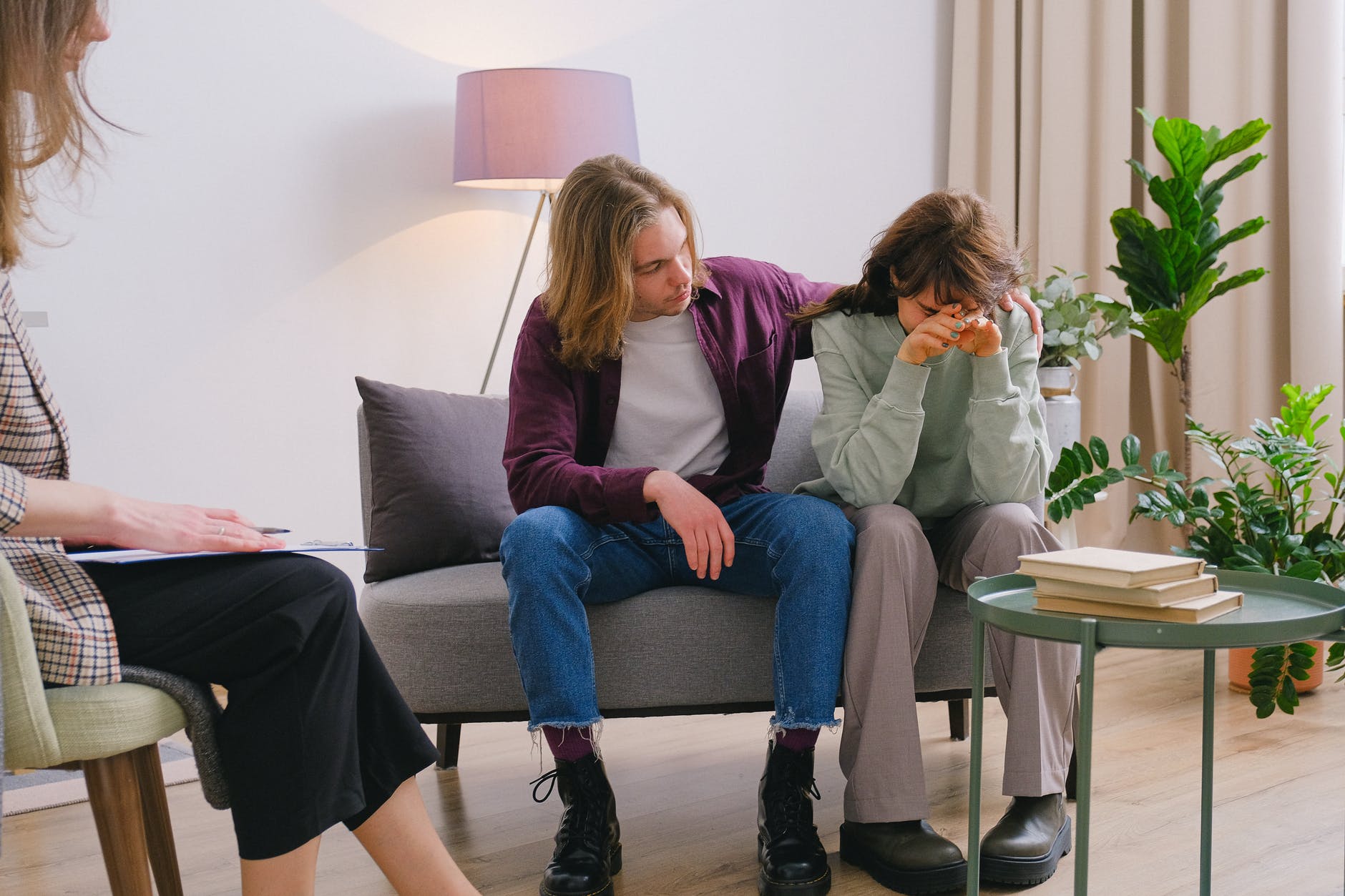Behavioral Health
Behavioral health refers to how physical and cognitive habits affect one’s entire well-being. From eating habits to mood and emotions, behavioral health affects how we think and function in our everyday lives. As the word “behavior” describes, this is the aspect of our health that influences the way we conduct ourselves in the things that we attend to, such as school, work, and even relationships with other people. For Tucson residents who might be dealing with adverse or addictive behaviors due to certain factors, it’s important to know where to seek help to improve one’s behavioral health in Tucson. As behavioral health is closely tied with mental and psychiatric aspects, negative behaviors manifest from unhealthy thoughts and occasional self-destructive habits which affect the mind.
Behavioral health is a significant part of the formation of addictive behaviors. As addictive substances, such as illicit drugs and alcohol, generate dopamine or the “feel-good” hormone, the brain reinforces drug use and addiction. When these negative behaviors are left untreated, the mind becomes hardwired to seek these activities regardless of the potential harm and circumstance. In many cases, people with severe addiction even have drug cravings during work shifts.
In order to address addictive behaviors, cognitive behavioral therapy and integrated behavioral health care become essential for recovery.
What is cognitive-behavioral therapy?
Cognitive-behavioral therapy is a type of psychiatric treatment that proves to be effective for mental health illnesses, like depression, anxiety, and addiction. It works by assisting people in identifying and changing thought patterns that have negative impacts on behaviors and emotions. To be specific, therapists who conduct this teach mental techniques to people with addiction, which allow them to redirect their minds away from drug consumption, and onto a productive lifestyle. The following are just some of the techniques that help individuals overcome self-destructive thinking:
— Relaxation
— Learning new skills
— Goal-setting
— Journaling and self-monitoring
— Problem-solving

However, cognitive-behavioral therapy does not end with assistive mental techniques. In fact, there are also various types of cognitive-behavioral therapies. From self-help materials to structured therapies, the different approaches to negative cognition allow the most fitting treatment method for each specific case. To briefly describe, here are the major types of cognitive-behavioral therapy:
— Dialectical behavior therapy – to treat mood disorders and substance use through emotional and cognitive regulation
— Rational emotive behavior therapy – a short-term therapy to challenge current negative perceptions and outlooks in life
— Cognitive therapy – to identify specific emotions and problems, and process them in a more goal-oriented perspective
— Multimodal therapy – integrating different types of biological and social treatments for behavior restoration
In general, integrating cognitive behavioral therapy for substance addiction allows a more holistic treatment, as it provides the person with the necessary skills to become resilient and independent with his or her thoughts.
What is integrated behavioral health?
Integrated behavioral health is when treatment and care coordinate therapies for medical conditions and behavioral health factors. Integrated behavioral health care takes into account the psychological and physiological functions of the person trying to recover. As an example, for substance use disorder treatment, in addition to medication-assisted detoxification, behavioral therapy for psychosocial support is implemented alongside. This multimodal approach ensures that the individual gets support for many aspects of recovery, particularly physical, mental, and emotional.
Integrated behavioral health services connect medical doctors, psychiatrists, and behavioral health clinicians. It is a collaboration between experts, which ensures efficient recovery for individuals with addiction. Through this, the concerning person will not only be sober after treatment but also capable of a productive life. Although integrated treatment is an effective approach, it is first important to identify manifesting behaviors, and detect whether a person has an addiction, as soon as possible.
What are the most common behaviors associated with addiction?
The most common behaviors are not hard to miss, especially when paying close attention. These can be observed inside the house most of the time. In addition, some behavioral changes are drastic enough for family members to feel that something is wrong. One example is the sudden loss of motivation and difficulty to fulfill responsibilities.
There are many manifestations of drug addiction, which may include:
— Feeling the need to consume drugs occasionally
— Easily distracted by the thought of addictive substances
— Becoming financially unstable because of drug expenses
— Declining performance in work or school
— Losing motivation for hobbies that are previously enjoyable
— Disregard for self-care, appearance, and hygiene
Aside from these, there are many other patterns and symptoms that may signify drug addiction. As the mental and physical health of each person is distinct, the response to addictive stimuli also varies. Regardless, learning how to cope with early signs may slow down the formation of more harmful habits from addiction.
Ways to Cope with Behavioral Patterns of Addiction
Coping with negative behaviors may be difficult, as the person’s thoughts and emotions amplify these unproductive patterns. However, there are easily practiced coping skills which may assist in preventing the addiction from taking over your life. From sleeping early to eating healthy, productive habits can replace negative ones created by substance use. The following are five coping strategies that may help battle addiction behavior:
1. Physical exercise. You can never go wrong with daily exercise. According to a study in the Journal for Clinical Psychiatry, physical exercise can improve overall mental health.
2. Meditation and mindfulness exercises. Taking deep breaths, and being aware of your emotions and surroundings can allow you to take a step back from drug cravings.
3. Eating healthy and sleeping early. If you find it difficult to have the motivation for the first two coping strategies, good habits that require little effort can be a starting step. Eating healthy food can boost the body in terms of nutrition, and sleeping early can help you in making the next day productive.
4. Discover new hobbies. Learning new hobbies can allow you to invest time, energy, and effort into it. This reduces the possible instances where you want and can consume addictive substances
5. Open up to your family or friends. Telling others what you are going through can allow them to convince you to seek professional help. Having people who understand can also make you feel less lonely, motivating you to make an effort towards recovery.

Although there are specific ways to cope with negative behaviors, it can sometimes be not enough in reducing drug use. When you feel that your substance use disorder is getting out of hand, you should start seeking professional help.
How Cognitive Behavioral Therapy Addresses Addictive Behaviors
As addiction disrupts cognitive processes, emotional regulation, and motivation, treatment, which targets the mind and body, address substance use. Specifically, cognitive-behavioral therapy allows the person to identify and change the source of his or her negative behavioral patterns. The goal-orientedness aspect of this treatment makes it realistic, effective, and time-definite. However, it is important to seek trusted and legitimate behavioral health services, like substance abuse therapy programs in Chandler, Arizona.
Treatment is not something to be worried about. Seeking help does not mean that you are different from other people in a negative way. It simply shows that you want to help yourself or your loved one to change for the better.
At Buena Vista Health and Recovery Centers, we provide personalized treatment for drug addiction and behavioral health in Tucson, AZ. Our programs do not focus solely on treatment, but also on coping and readjusting into the community. We believe that everyone deserves another chance at a productive life.
If you or someone you know is seeking rehab, get in touch with one of our addiction professionals today. Give us a call at (800) 922-0095 or visit our detox center for substance abuse in Arizona in 5151 E Pima St, Tucson, AZ 85712.





